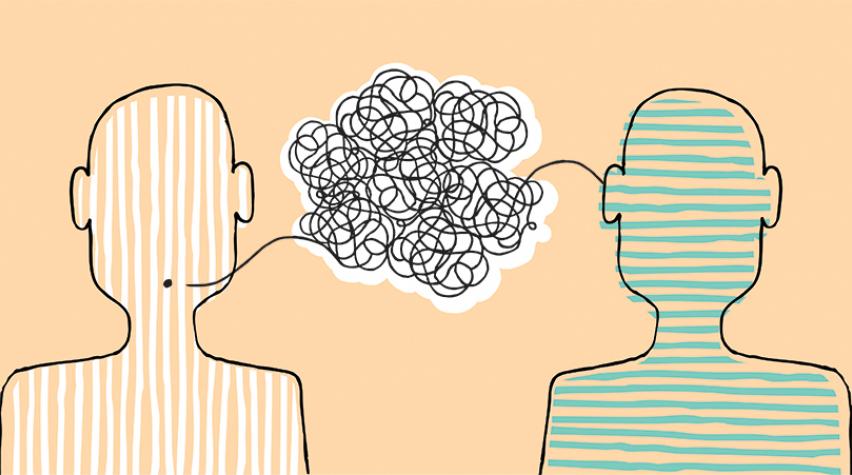UNCONVENTIONAL WISDOM
‘How can you hate me, when you don’t even know me?’
That’s the question African American musician Daryl Davis wanted an answer to. And he knew there was only one group that could give it to him: the Ku Klux Klan.
Davis started befriending members of the KKK. They became the ‘invite his family over for dinner’ kind of friends. Davis has a level of patience you wouldn’t believe.
He never set out to convert anyone, but Davis ended up being responsible for 200 klansmen renouncing their membership from the Klan.
Davis collects the robes of the klansmen he converts and plans to give them to a museum. ‘I pull out my robes and hoods and say, “This is what I’ve done to put a dent in racism”,’ he said. ‘I’ve got robes and hoods hanging in my closet by people who’ve given up that belief because of my conversations sitting down to dinner.’
If we want to rid racism from the world, it’s imperative that we rethink how we discuss contentious topics. As attitudes toward race and gender have changed over time, words like ‘racist’ and ‘sexist’ have rightfully become pejoratives. That’s to say, when somebody is accused of being a racist, it’s interpreted as a personal attack on their character.
Now, you might ask, ‘What’s wrong with attacking the character of racists?’ Fair point. If there’s a character that deserves attack, it’s probably those of racists. And given Australia’s history of racism, it’s an understandable reaction. But we should be less concerned about abusing racists and more concerned about the difficult task of reducing the prevalence racism.
So, how do we do that?
David Broockman at Stanford University shows that it is conversation, not abuse, that allows us to unlearn prejudice. Broockman engaged in non-confrontational 10-minute conversations about trans* issues with 500 voters in Southern Florida. He could have just waited for his test subjects to say something remotely transphobic and pounce, but he didn’t. He found that by having non-accusatory conversations about contentious issues, the voters were more likely to defend trans* rights, even after just three months.
There are lessons to be learnt from the 2016 US Presidential election. During the election, Clinton supporters threw everything but the kitchen sink at Trump supporters. Protestors at Emory College accused Trump supporters of ‘hate speech’ for writing ‘TRUMP 2016’ in chalk. Clinton herself even said: ‘You could put half of Trump supporters into what I call “the basket of deplorables.” They’re racist, sexist, homophobic, xenophobic, islamophobic; you name it.’
Not only does this tactic shut down debate, but it’s an obvious act of virtue signalling. It makes the person hurling the insults feel good, but it doesn’t do anything to change their opponent’s mind.
When we hear morally objectionable opinions, we seem to catapult the person with the most emotional and aggressive reaction to the top of society’s moral hierarchy. But we never pause and think. Are they actually doing anything to stop that morally objectionable opinion from propagating?
It doesn’t take an expert in psychology to realise that if you insult someone, they become hostile and reluctant to hear what you have to say. Insulting someone is never an effective way of changing their mind. No one cares that you think you’re better than them. Just ask yourself, how many KKK members do you think Davis would’ve converted if he had resorted to insults?
Insulting people probably has the opposite effect. Being constantly insulted, generalised and prevented from speaking, Trump supporters fled to insular online communities that lacked intellectual diversity. Spend a few minutes on YouTube, and you’ll see how popular they still are. Insulting someone doesn’t stop them from speaking, it just stops them from speaking to you.
If we show people with morally-objectionable opinions that we’re willing to listen to them without insulting them, they’ll likely reciprocate. And, if we haphazardly insult everyone we disagree with, they’ll continue doing the same.
Grand Dragon of the KKK Roger Kelly said this of Davis: ‘We don’t agree on everything, but at least he respects me to sit down and listen to me, and I respect him to sit down and listen to him.’ Kelly eventually left the KKK, years after befriending Davis.
I’m not saying we should all befriend our neighbourhood neo-Nazi. I’m saying that if we’re serious about eradicating racism from society, we should use the same rules of persuasion for racists that we do for everyone else. Why? Because they work. Calling someone a racist or any insult is a personal attack, not an expression of disagreement. And no one changes their mind because of a personal attack. It’s called the ad hominem logical fallacy for a reason!
When talking to society’s moral heretics, we should follow Davis’ lead. We should debate facts and ideas, not our personal superiority. Only then, will people genuinely listen.
We acknowledge the Ngunnawal and Ngambri people, who are the Traditional Custodians of the land on which Woroni, Woroni Radio and Woroni TV are created, edited, published, printed and distributed. We pay our respects to Elders past and present. We acknowledge that the name Woroni was taken from the Wadi Wadi Nation without permission, and we are striving to do better for future reconciliation.
